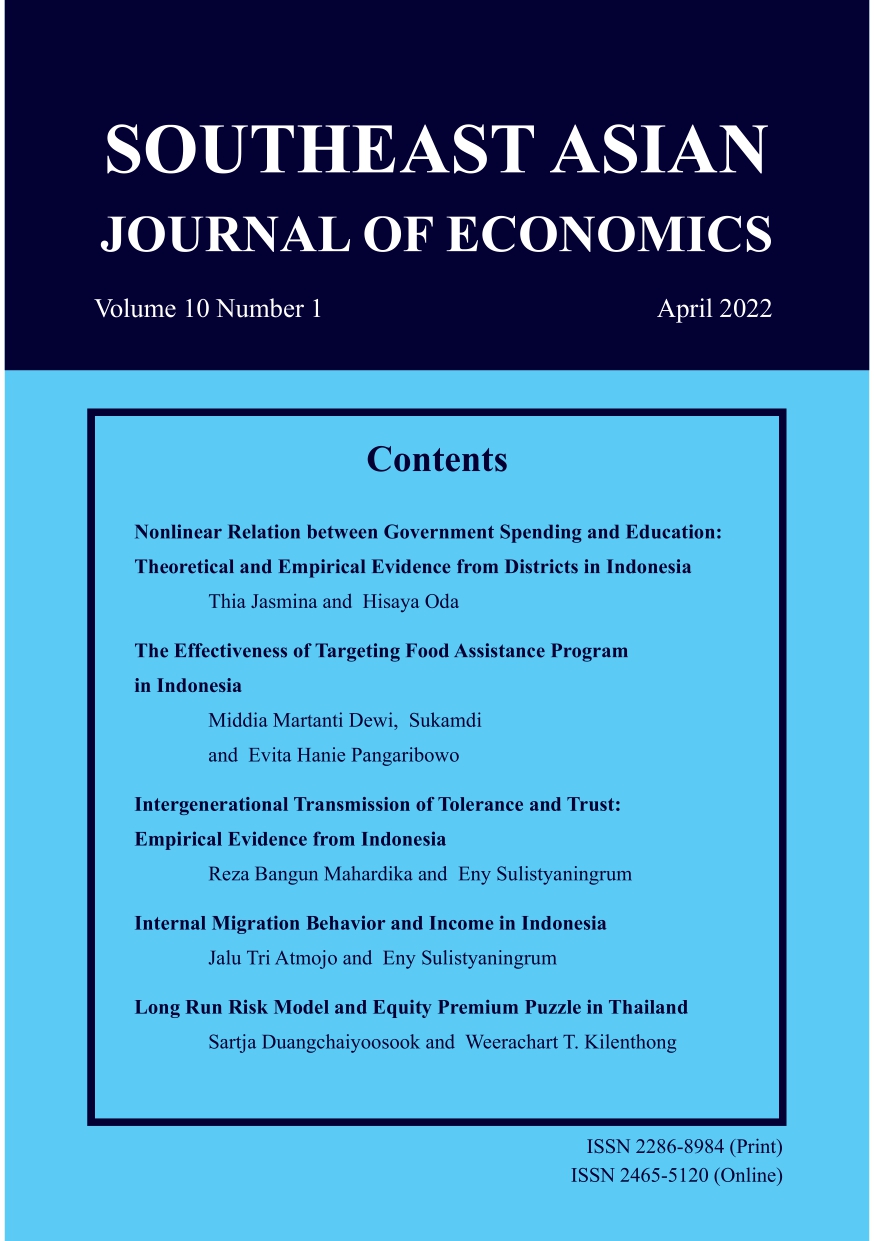Nonlinear Relation between Government Spending and Education: Theoretical and Empirical Evidence from Districts in Indonesia
Keywords:
government spending, education, human capital, district, IndonesiaAbstract
The Government of Indonesia has fully committed to allocating 20 percent of its budget to education since 2009. This paper aims to examine the impact of government spending on the enrollment ratio of basic education at the district level in Indonesia after 2009. This paper theoretically shows a nonlinear pattern between government spending and education by applying the endogenous growth theory. Moreover, this paper portrays empirical evidence from the district level in Indonesia that combining central and local government educational spending has no significant impact on the enrollment ratio of education. However, disaggregating the spending shows that the local government spending has a negative impact, whereas the central government spending has a positive and nonlinear impact.
Downloads
Published
How to Cite
Issue
Section
License

This work is licensed under a Creative Commons Attribution-NonCommercial-NoDerivatives 4.0 International License.
The submission of a manuscript implies that the paper is an original work and has not been published elsewhere. The author(s) authorize the journal to reproduce or distribute the paper in printed or other electronic forms.







